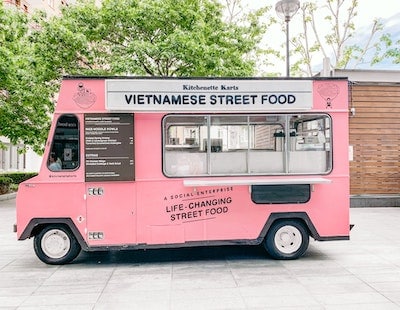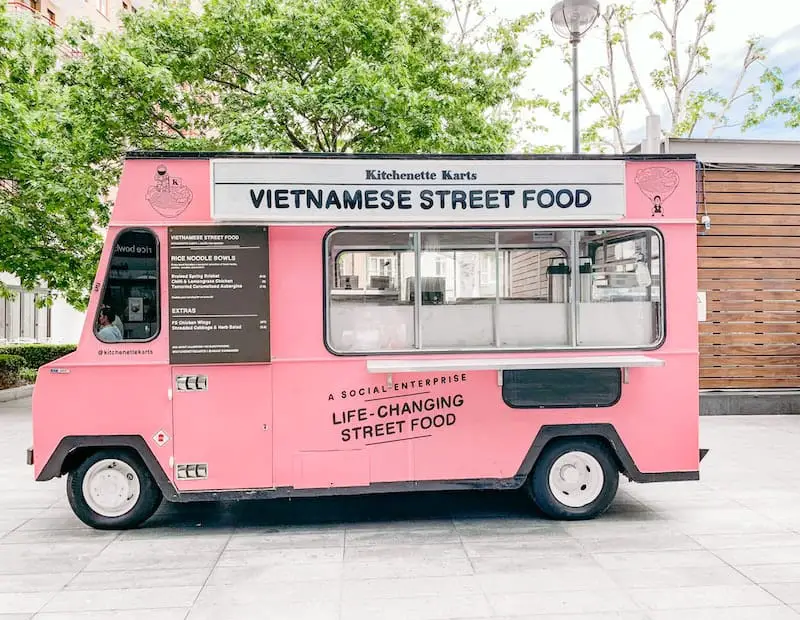Are Commissary Kitchens Necessary for Food Truck Owners?
As the food truck scene continues to expand across the country, many entrepreneurs and culinary fanatics are looking to jump on the bandwagon. Food trucks can be a lucrative way to make money and grow a new business. However, there are many factors that you must consider before jumping into this type of business model for your restaurant.
Do food trucks need a commissary kitchen? While not every food truck is required to work out of a commissary kitchen, there are many benefits to this model. A commissary kitchen allows food truck owners to prepare their food in a commercial kitchen before selling it from their truck.
Some cities and states require the use of a commercial-grade kitchen for the preparation of all food that is sold for profit. In this situation, a commissary kitchen is an excellent option. In this post, we will discuss the things you must consider when determining whether or not your food truck needs a commissary kitchen.
What is a Commissary Kitchen?
A commissary kitchen is a commercial-grade kitchen that individuals can rent on a short or long-term basis. In most cases, several food trucks or small business owners will share the kitchen space, allowing them to access the equipment and space they need at a fraction of the cost.
Because many states and cities require food that is sold for profit to be prepared in a commercial kitchen, commissary kitchens play a huge role in the food truck industry. In addition to providing the equipment and tools necessary for food preparation, commissary kitchens act as a “home base” of sorts for new food truck owners.

Does Every Food Truck Need a Commissary Kitchen?
So, does every food truck need to use a commissary kitchen? This answer will depend largely on the nature of your food truck as well as the area in which you live.
Research Your Local Food Truck Regulations
While food trucks have been around for years, the recent increase in this industry has led many states and cities to implement food truck regulations. Before you open a food truck business, you must spend time researching your local food truck regulations.
In nearly every state, food that is sold by a business must be prepared in a licensed, commercial-grade kitchen. Although this doesn’t mean that you must use a commissary kitchen, it DOES mean that you will need to put some thought into where you will be preparing your food.
Do not assume that your city does not have food truck regulations just because you are unable to find them through a quick Google search. If you are unable to find the information for which you are looking you must contact your local authorities for clarification on the matter.
Consider the Needs of Your Food Truck
Once you determine whether you need to use a commercial kitchen to prepare your food, you must also consider the needs of your food truck. Are you planning on serving a full menu or does your food truck only offer snacks? What will you need to prepare before you can serve your food?
Some food trucks serve menus that require little preparation. Others, however, will require much more space to prepare their food. If you are serving a full menu or offering items that require specialized equipment, it will likely be beneficial to work out of a commissary kitchen.
Renting a commissary kitchen may seem like a large expense for your start-up business. However, in addition to ensuring that your food truck remains in compliance, it can also allow you to more effectively and efficiently serve your customers.
Benefits of Using a Commissary Kitchen
Even if it is not required by your local food truck regulations, there are many benefits to using a commissary kitchen for your food truck.
Acts As a “Home Base” for Your Food Truck
Especially in larger cities, finding a space to store your food truck during off-hours can be a challenge. Many commissary kitchens offer free parking for their tenants, allowing you to keep your food truck in a convenient location between shifts! In some areas, this alone can be well worth the cost of renting space at your local commissary kitchen.
Bigger Space for Food Prep & Storage
Let’s face it, even the most elaborate food truck provides little space for food preparation or storage. Because of this, many food truck owners face challenges with inventory. This often results in selling out due to an inability to store adequate food. Using the large refrigerators found in a commissary kitchen allows you to keep your food cold overnight. You can learn more about how food trucks keep food cold here.
Providing your team with adequate space for food preparation will allow them to work efficiently. Additionally, the added storage space for extra food will ensure that you are prepared to serve every customer that steps up to your window!
Access to Specialized Equipment Too Large for Food Truck
Let’s say, for example, you are passionate about starting a food truck that sells donuts. The only problem is that you don’t have access to the deep fryer you will need to prepare your delicious treats! This is where a commissary kitchen is incredibly beneficial.
Commissary kitchens are fully equipped with commercial-grade tools, equipment, and appliances. Access to this equipment allows you to expand your menu offerings without investing in bulky appliances that require large amounts of space!
Ensures Your Business Meets Health Department Requirements
There are many things to consider when you open a food truck. One of the most important things is to ensure that your business meets health department requirements. While these vary by state, they often require food trucks to utilize a licensed food preparation facility. Additionally, they regulate things like how your food truck gets water, and even how you wash dishes in your food truck.
More Cost-Effective Than Leasing a Full-Time Kitchen Space
Because a commissary kitchen is a shared space, it is much more cost-effective than leasing a full-time kitchen space. For food truck owners who are just starting their business, these savings can make an enormous difference!
Builds Community With Other Food Truck Owners
Finally, the food truck community is just that – a community! Although you may engage in playful competition with other food truck owners, you are all working towards a common goal. Working in a commissary kitchen with other food truck owners allows you to build this community and learn from the experience of others.
Alternatives to Using a Commissary Kitchen
There are, of course, alternatives to using a commissary kitchen depending on the unique circumstances in which you find yourself.
Rent a Full-Time Kitchen Space
As we briefly mentioned above, some food truck owners choose to rent a full-time kitchen space. This is significantly more expensive than renting a space in a commissary kitchen. Unless you are expanding an existing food truck business, this is likely not the best option.
Seek Out Non-Traditional Options
Some food truck owners seek out non-traditional options for food preparation. For example, most churches and schools have kitchens that meet health department standards. In some cases, you may be able to partner with these organizations to rent their kitchen space. However, you will not have access to the commercial-grade appliances or storage space that a commissary kitchen provides.
When it comes to starting a food truck business, there are many things that you need to consider. From figuring out how food trucks get electricity to planning your menu, this is not an easy task! We hope this article provides you with clarity regarding the benefits of using a commissary kitchen as you launch your new local business.

